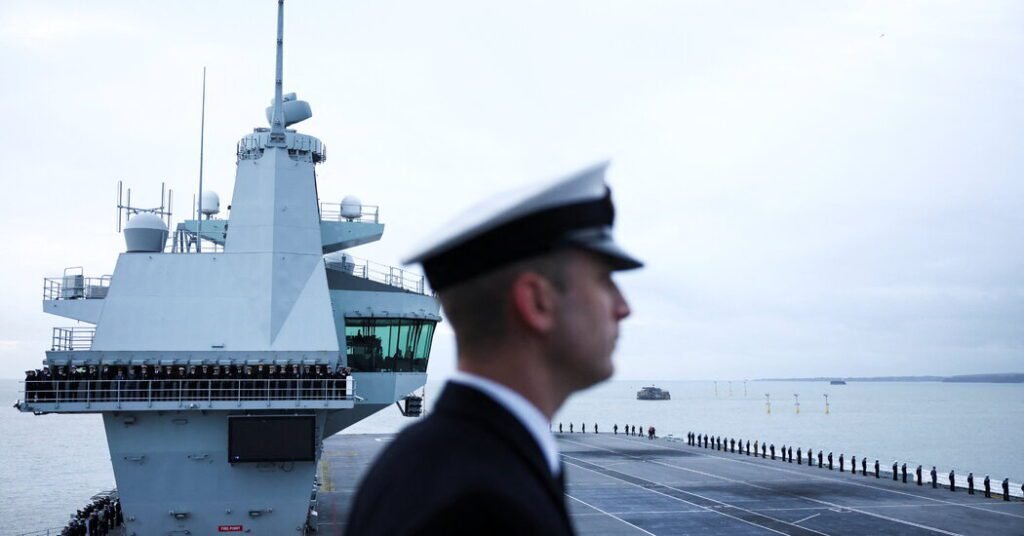The British government confirmed on Wednesday that a test launch of an unarmed Trident missile from a Royal Navy submarine last month failed, raising questions about the state of Britain’s nuclear deterrent capability.
It was the second such launch malfunction in a row, coming nearly eight years after another Trident went off course at sea, an incident that at the time drew criticism for the government’s failure to disclose it.
And this time, the failed launch was first reported not by the Ministry of Defense but by a London tabloid, The Sun, which reported that the missile’s boosters failed and it landed in the water near the submarine, HMS Vanguard, the which had just come out of a seven-year renovation.
Britain’s Defense Secretary, Grant Shapps, and a top Royal Navy officer were both on board the Vanguard for the January 30 test. In a written statement to the House of Commons, Mr Shapps said “there has been an anomaly”. during the test launch, but that it was “event specific”.
“There are no implications for the reliability of the wider Trident missile systems and stockpile,” Mr Shapps wrote. “Nor are there any implications for our ability to launch our nuclear weapons should the circumstances arise in which we must.”
The British navy has faced a number of problems in recent months with its fleet. One of her flagship aircraft carriers, H.MS. The Queen Elizabeth pulled out of a deployment to a NATO exercise off the coast of Norway earlier this month due to a problem with one of its propeller shafts.
Her sister ship, HMS Prince of Wales, took her place in the exercise, but her deployment was also briefly delayed before departing on 12 February. In 2022, the Prince of Wales went down off the Isle of Wight, also due to a propeller-related problem and required nine months of repairs.
Military analysts said it was hard to say exactly what went wrong with the latest launch. Britain has four nuclear submarines equipped with the Trident missile system, which is manufactured by the American company Lockheed Martin. The missile was not armed with a nuclear warhead during the test.
“Whether the problem can now be fixed, or even what it is, is not clear,” said Malcolm Chalmers, deputy director general of the Royal United Services Institute, a London think tank. “But Vanguard is getting very old, beyond its planned life, and has just come out of a seven-year overhaul and resupply.
Mr Chalmers criticized the government’s handling of the incident, noting that it had announced the test but then failed to report its failure.
“Somebody was going to see this sooner or later,” he said, “and they should have gotten away with history.”
The last failed launch, in June 2016, became a political headache for Prime Minister Theresa May’s government when news of it first leaked several months later. Mrs May was initially reluctant to acknowledge the incident, despite calling on Parliament to invest in new Trident-armed submarines.
With concerns growing about an aggressive Russia under President Vladimir V. Putin, Britain’s military preparedness has once again become a political hot button. The opposition Labor Party has accused successive Conservative-led governments of bleeding the armed forces through years of budget cuts imposed by fiscal austerity.
“Over the past 13 years, our military has been cut to its smallest size since the days of Napoleon,” Labor lawmaker John Healy, who is responsible for defense policy, and the party’s foreign policy chief, wrote in a column last autumn. David Lammy. in the Daily Telegraph.

